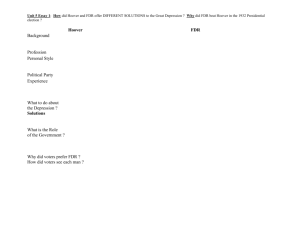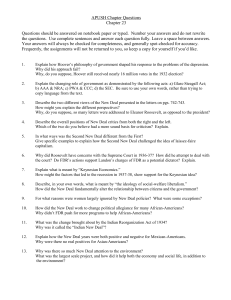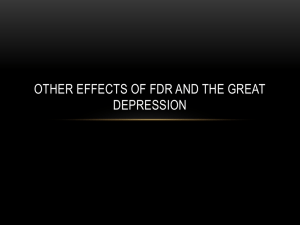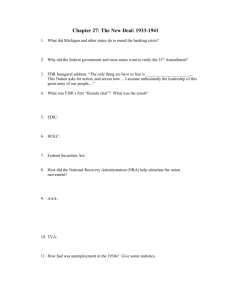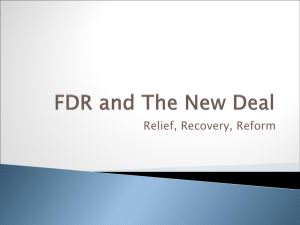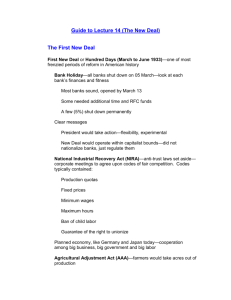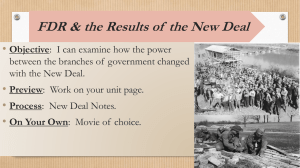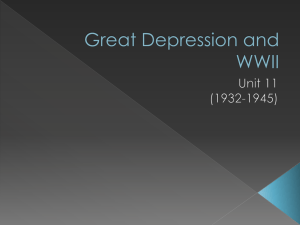The New Deal
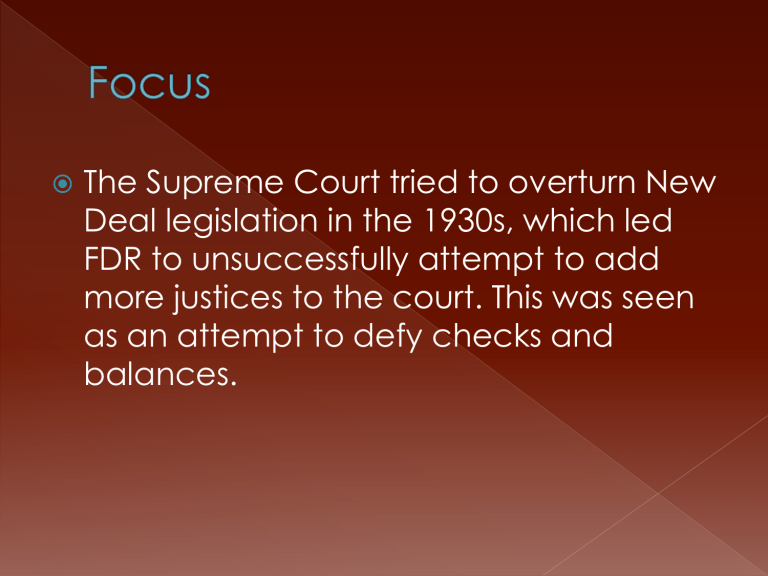
The Supreme Court tried to overturn New
Deal legislation in the 1930s, which led
FDR to unsuccessfully attempt to add more justices to the court. This was seen as an attempt to defy checks and balances.
1. What was the difference between
Hoover and Roosevelt’s response to the
Great Depression?
2. What was the overall purpose of the
New Deal?
3. How did FDR deal with the banking crisis?
In first 100 days, many New Deal laws were passed to deal with the crisis
FDIC – protects people’s savings if banks close
SEC (Securities and Exchange
Commission)
Made unethical practices in the stock market illegal, like buying stocks on margin
AAA (Agricultural
Adjustment
Administration)
The government paid farmers to limit production in order to raise prices
1. How did Hoover and FDR differ in their approach to ending the Depression?
2. How did FDR try to solve the banking crisis?
3. How did the New Deal try to reform the problems that led to the stock market crash?
The TVA built dams across the South that brought electricity to rural poverty-stricken areas
Relief agencies such as the CCC and
WPA employed millions of
Americans who did not want a handout from the government
A new set of laws expanded the scope of New Deal reform
Social Security Act (1935) – old-age pension
National Labor Relations Act/Wagner
Act (1935) – guarantees right of unions to collective bargaining
“First, we are giving opportunity of employment to one-quarter of a million of the unemployed, especially the young men who have dependents, to go into the forestry and flood-prevention work.
This is a big task because it means feeding, clothing and caring for nearly twice as many men as we have in the regular army itself. In creating this we are killing two birds with one stone. We are clearly enhancing the value of our natural resources, and we are relieving an appreciable amount of actual distress. This great group of men has entered upon its work on a purely voluntary basis; no military training is involved and we are conserving not only our natural resources, but our human resources. One of the great values to this work is the fact that it is direct and requires the intervention of very little machinery.” –FDR Fireside Chat,
May 1933
Which New Deal program in your notes is this describing? How do you know?
The Supreme Court overturned many New
Deal programs
They believed the New
Deal got the gov’t too involved in the economy
Schecter Poultry v. U.S.
(1935) – overturned
NIRA, which set prices for many agricultural goods
U.S. v. Butler (1936) – declared the AAA unconstitutional
1937 – FDR proposes to add a new justice for each one over 70 years old
Would replace many of his critics
The public rejected the plan
Thought FDR wanted too much power
